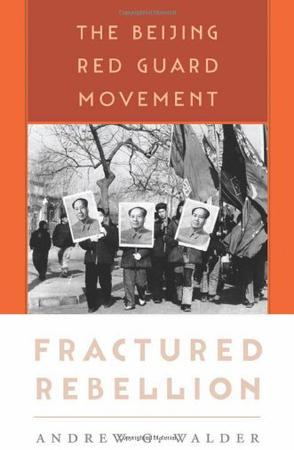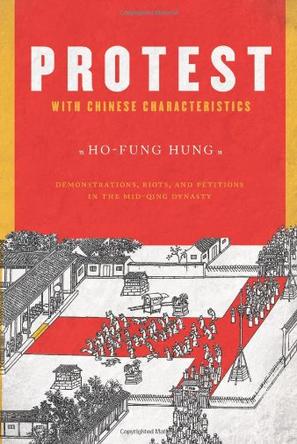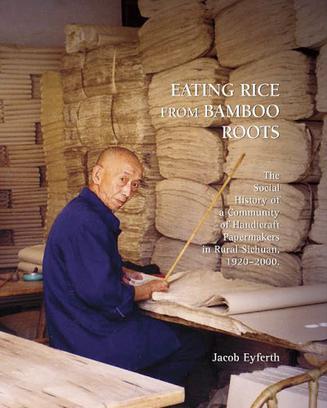-

Fractured Rebellion
Fractured Rebellion is the first full-length account of the evolution of China’s Red Guard Movement in Beijing, the nation’s capital, from its beginnings in 1966 to its forcible suppression in 1968. Andrew Walder combines historical narrative with sociological analysis as he explores the radical student movement’s crippling factionalism, devastating social impact, and ultimate failure. Most accounts of the movement have portrayed a struggle among Red Guards as a social conflict that pitted privileged “conservative” students against socially marginalized “radicals” who sought to change an oppressive social and political system. Walder employs newly available documentary evidence and the recent memoirs of former Red Guard leaders and members to demonstrate that on both sides of the bitter conflict were students from comparable socioeconomic backgrounds, who shared similar—largely defensive—motivations. The intensity of the conflict and the depth of the divisions were an expression of authoritarian political structures that continued to exert an irresistible pull on student motives and actions, even in the midst of their rebellion. Walder’s nuanced account challenges the main themes of an entire generation of scholarship about the social conflicts of China’s Cultural Revolution, shedding light on the most tragic and poorly understood period of recent Chinese history. -

Fishing Wars and Environmental Change in Late Imperial and Modern China
-

Mao's Invisible Hand
Observers have been predicting the demise of China’s political system since Mao Zedong’s death over thirty years ago. The Chinese Communist state, however, seems to have become increasingly adept at responding to challenges ranging from leadership succession and popular unrest to administrative reorganization, legal institutionalization, and global economic integration. What political techniques and procedures have Chinese policymakers employed to manage the unsettling impact of the fastest sustained economic expansion in world history? As the authors of these essays demonstrate, China’s political system allows for more diverse and flexible input than would be predicted from its formal structures. Many contemporary methods of governance have their roots in techniques of policy generation and implementation dating to the revolution and early PRC—techniques that emphasize continual experimentation. China’s long revolution had given rise to this guerrilla-style decisionmaking as a way of dealing creatively with pervasive uncertainty. Thus, even in a post-revolutionary PRC, the invisible hand of Chairman Mao—tamed, tweaked, and transformed—plays an important role in China’s adaptive governance. -

Ancestral Memory in Early China
Ancestral ritual in early China was an orchestrated dance between what was present (the offerings and the living) and what was absent (the ancestors). The interconnections among the tangible elements of the sacrifice were overt and almost mechanical, but extending those connections to the invisible guests required a medium that was itself invisible. Thus in early China, ancestral sacrifice was associated with focused thinking about the ancestors, with a structured mental effort by the living to reach out to the absent forebears and to give them shape and existence. Thinking about the ancestors—about those who had become distant—required active deliberation and meditation, qualities that had to be nurtured and learned. This study is a history of the early Chinese ancestral cult, particularly its cognitive aspects. Its goals are to excavate the cult’s color and vitality and to quell assumptions that it was no more than a simplistic and uninspired exchange of food for longevity, of prayers for prosperity. Ancestor worship was not, the author contends, merely mechanical and thoughtless. Rather, it was an idea system that aroused serious debates about the nature of postmortem existence, served as the religious backbone to Confucianism, and may even have been the forerunner of Daoist and Buddhist meditation practices. -

Protest with Chinese Characteristics
The origin of political modernity has long been tied to the Western history of protest and revolution, the currents of which many believe sparked popular dissent worldwide. Reviewing nearly one thousand instances of protest in China from the eighteenth to the early-nineteenth centuries, Ho-fung Hung charts an evolution of Chinese dissent that stands apart from Western trends. Hung samples from mid-Qing petitions and humble plaints to the emperor. He revisits rallies, riots, market strikes, and other forms of contention rarely considered in previous studies. Drawing on new world history, which accommodates parallels and divergences between political-economic and cultural developments East and West, Hung shows how the centralization of political power and an expanding market, coupled with a persistent Confucianist orthodoxy, shaped protesters' strategies and appeals in Qing China. This unique form of mid-Qing protest combined a quest for justice and autonomy with a filial-loyal respect for the imperial center, and Hung's careful research ties this distinct characteristic to popular protest in China today. As Hung makes clear, the nature of these protests prove late imperial China was anything but a stagnant and tranquil empire before the West cracked it open. In fact, the origins of modern popular politics in China predate the 1911 Revolution. Hung's work ultimately establishes a framework others can use to compare popular protest among different cultural fabrics. His book fundamentally recasts the evolution of such acts worldwide. -

Eating Rice from Bamboo Roots
This book charts the vicissitudes of a rural community of papermakers in Sichuan. The process of transforming bamboo into paper involves production-related and social skills, as well as the everyday skills that allowed these papermakers to survive in an era of tumultuous change. The Chinese revolution - understood as a series of interconnected political, social, and technological transformations - was, Jacob Eyferth argues, as much about the redistribution of skill, knowledge, and technical control as it was about the redistribution of land and political power. The larger context for this study is the 'rural-urban divide': the institutional, social, and economic cleavages that separate rural people from urbanites. This book traces the changes in the distribution of knowledge that led to a massive transfer of technical control from villages to cities, from primary producers to managerial elites, and from women to men. It asks how a vision of rural people as unskilled has affected their place in the body politic and contributed to their disenfranchisement. By viewing skill as a contested resource, subject to distribution struggles, it addresses the issue of how revolution, state-making, and marketization have changed rural China.